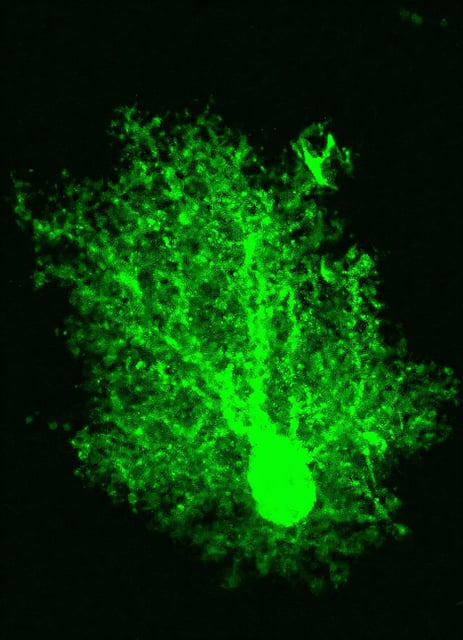Overview
- Astrocytes, once thought to play only a supportive role, are now shown to actively regulate neuronal activity and synaptic networks in real time.
- Research from OHSU demonstrates that astrocytes use GPCR signaling to selectively respond to neurotransmitters, dynamically filtering and modulating neuronal inputs.
- A complementary study from WashU reveals that norepinephrine reshapes brain connectivity by signaling through astrocytes, which release secondary chemical messengers to alter synaptic activity.
- Findings from fruit fly and rodent models confirm these mechanisms are evolutionarily conserved, underscoring their fundamental role in brain function.
- These discoveries position astrocytes as promising therapeutic targets for treating neurodegenerative and neuropsychiatric disorders, including attention and mood regulation.

